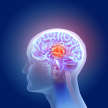In today's fast-paced world, the desire to shed excess weight quickly is common among many individuals. Whether it's for health reasons, aesthetic goals, or improving overall well-being, there are various strategies you can implement to achieve rapid weight loss. However, it's crucial to approach this goal with caution, ensuring that your methods are safe, sustainable, and aligned with your long-term health objectives. Here's a comprehensive guide on how to lose weight fast effectively:
Set Realistic Goals:
Before embarking on any weight loss journey, it's essential to establish realistic and achievable goals. Rapid weight loss is typically defined as losing one to two pounds per week. While it's possible to lose more weight initially due to factors like water weight and glycogen depletion, aiming for gradual and sustainable progress is key to long-term success.
Focus on Nutrition:
Nutrition plays a central role in any weight loss regimen. To lose weight quickly, prioritize whole, nutrient-dense foods while minimizing processed and high-calorie options. Incorporate plenty of fruits, vegetables, lean proteins, and whole grains into your meals. Additionally, pay attention to portion sizes and aim to create a calorie deficit by consuming fewer calories than your body needs to maintain its current weight.
Increase Physical Activity:
Exercise is another critical component of rapid weight loss. Incorporate a combination of cardiovascular exercise, strength training, and flexibility exercises into your routine to maximize calorie burn and muscle retention. Aim for at least 150 minutes of moderate-intensity aerobic activity or 75 minutes of vigorous-intensity activity per week, along with two or more days of strength training targeting all major muscle groups.
Hydration:
Staying hydrated is essential for overall health and can support weight loss efforts. Drinking water before meals can help reduce calorie intake by promoting a feeling of fullness. Aim to drink at least eight glasses of water per day, and opt for water over sugary beverages like soda and juice.
Get Adequate Sleep:
Sleep plays a crucial role in regulating appetite hormones and metabolism. Lack of sleep can disrupt these hormones, leading to increased hunger and cravings for high-calorie foods. Aim for seven to nine hours of quality sleep per night to support your weight loss goals.
Monitor Progress:
Tracking your progress is essential for staying motivated and making adjustments to your weight loss plan as needed. Keep a food journal, record your exercise sessions, and track changes in your weight and body measurements over time. Celebrate your achievements, no matter how small, and use setbacks as opportunities to learn and improve.
Seek Professional Guidance:
If you're considering rapid weight loss, it's advisable to consult with a healthcare professional or a registered dietitian. They can provide personalized guidance based on your individual needs, health status, and goals. Additionally, they can help you develop a safe and sustainable weight loss plan that aligns with your lifestyle and preferences.
Avoid Fad Diets and Quick Fixes:
While it may be tempting to try fad diets or extreme methods for rapid weight loss, such approaches are often unsustainable and can have negative consequences for your health. Instead, focus on making gradual, long-term changes to your diet and lifestyle that you can maintain over time.
In fact
Losing weight quickly is achievable with the right strategies and mindset. By focusing on nutrition, exercise, hydration, sleep, and monitoring your progress, you can reach your weight loss goals in a safe and sustainable manner. Remember to prioritize your health and well-being above all else, and seek professional guidance if needed. With dedication and consistency, you can achieve the results you desire and enjoy improved health and vitality for the long term.
Herbal Supplements and Weight Management:
In addition to lifestyle modifications, some individuals may consider incorporating herbal supplements into their weight loss regimen. While these supplements are widely available and marketed as natural alternatives to traditional weight loss methods, it's essential to approach them with caution and skepticism. Here are some popular herbal supplements and their potential effects on weight management:
1.Green Tea Extract: Green tea extract contains compounds called catechins, which have been studied for their potential to boost metabolism and promote fat burning. While some research suggests that green tea extract may have modest effects on weight loss, the evidence is not conclusive, and results can vary from person to person.
2. Garcinia Cambogia: Garcinia cambogia is a tropical fruit extract often used in weight loss supplements. It contains hydroxycitric acid (HCA), which is believed to inhibit an enzyme involved in fat storage and appetite regulation. However, studies on the effectiveness of garcinia cambogia for weight loss have yielded mixed results, and more research is needed to confirm its efficacy and safety.
3. Glucomannan: Glucomannan is a dietary fiber derived from the konjac plant. It works by absorbing water in the digestive tract, leading to feelings of fullness and reduced calorie intake. Some studies have shown that glucomannan supplementation can aid in weight loss, particularly when combined with a calorie-restricted diet. However, it's essential to drink plenty of water when taking glucomannan to prevent gastrointestinal side effects.
4. Caffeine: Caffeine is a natural stimulant found in coffee, tea, and certain weight loss supplements. It can increase metabolism and enhance fat burning, making it a common ingredient in many weight loss products. While caffeine may offer temporary benefits for weight loss, excessive consumption can lead to side effects such as insomnia, jitteriness, and increased heart rate.
5. Forskolin: Forskolin is a compound derived from the Indian coleus plant. It has been studied for its potential to increase fat breakdown and promote weight loss. Some research suggests that forskolin supplementation may be effective for reducing body fat and preserving lean muscle mass, but more studies are needed to confirm these findings.
Safety Considerations:
While herbal supplements may offer some potential benefits for weight management, it's crucial to use them cautiously and under the guidance of a healthcare professional. Many supplements are not regulated by the Food and Drug Administration (FDA), which means their safety and efficacy may not be thoroughly evaluated. Additionally, herbal supplements can interact with medications and may cause adverse reactions in some individuals.
Before starting any herbal supplement regimen for weight loss, consult with your healthcare provider to discuss potential risks and benefits. They can help you make informed decisions about which supplements, if any, are suitable for you based on your individual health status and goals. Remember that there is no magic pill for weight loss, and sustainable results are best achieved through a combination of healthy eating, regular exercise, and lifestyle modifications.
About the Creator
Premlata
I am a professional health care consultant







Comments
There are no comments for this story
Be the first to respond and start the conversation.